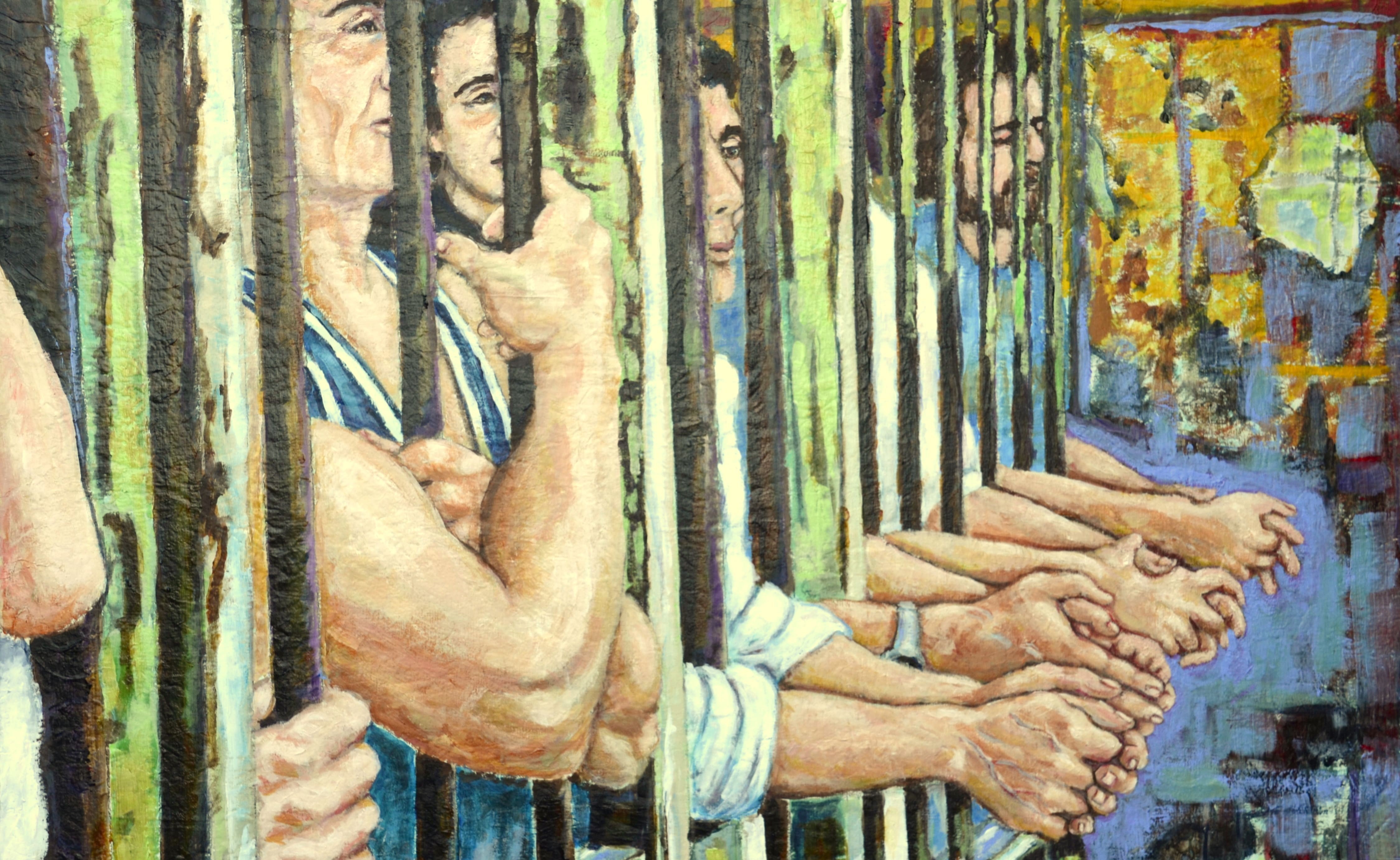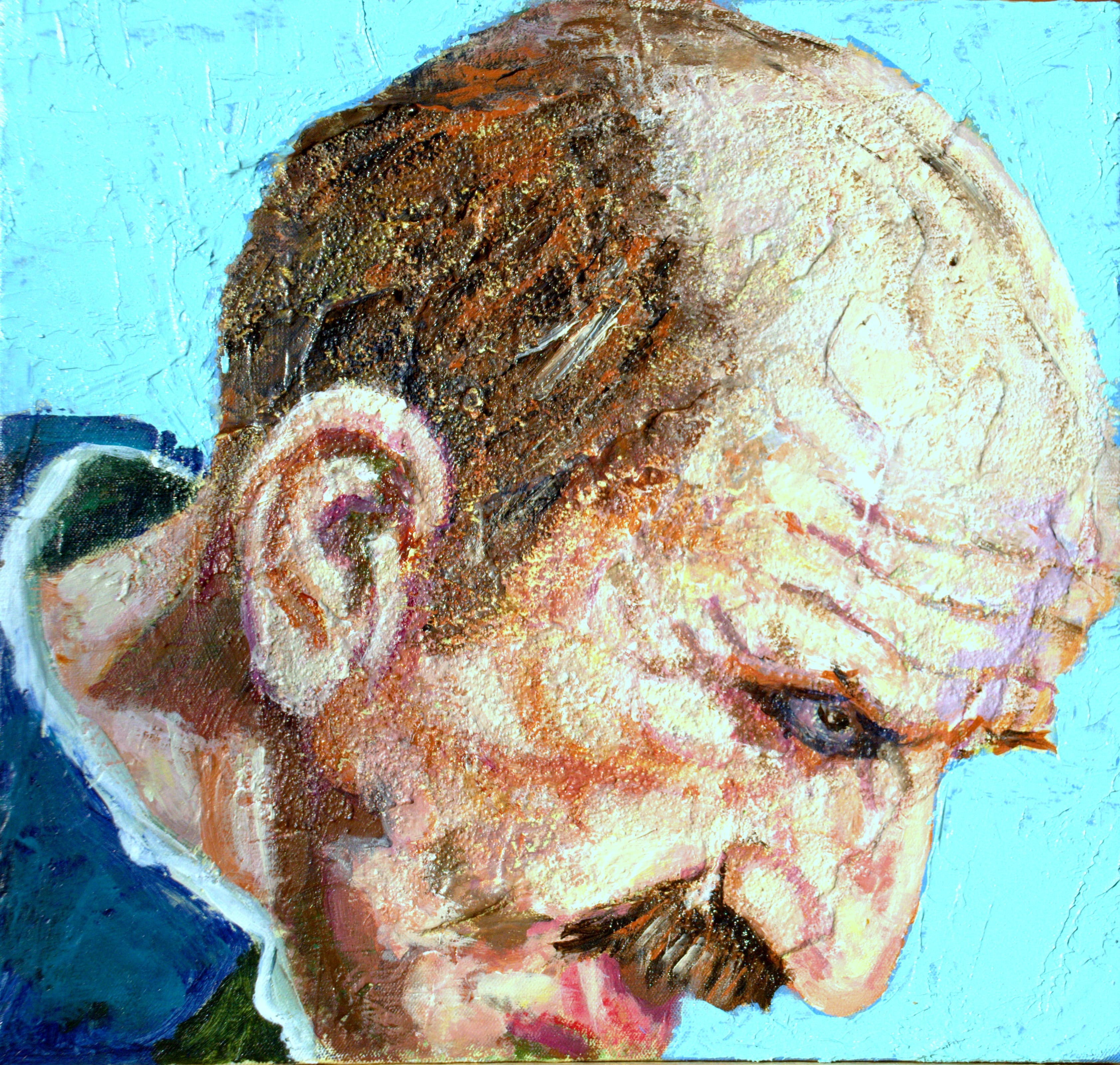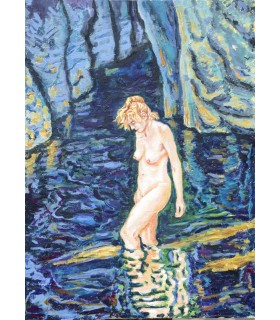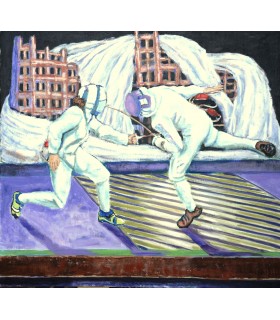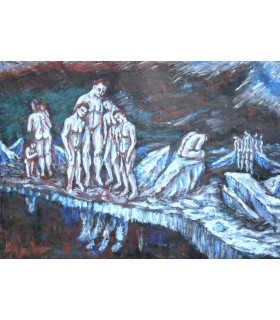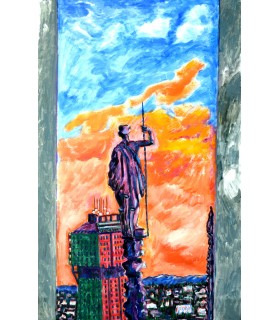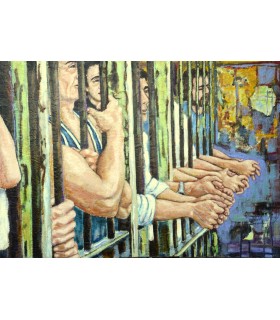About artist
Oscar Fontanesi was born in Milan in 1953, in a city that left him with a taste for cold mornings and slanting light. He studied philosophy at the University of Milan and the University of Cologne, where he explored Heidegger and discussed a thesis entitled Denker der Technik. Philosophy seemed to be his natural path, but meanwhile another urge grew within him, which, at the age of twenty-eight, imposed itself with force: painting entered his life as a sudden, almost physical vocation.
Self-taught, Fontanesi approached the canvas as a territory to be explored and understood. In his Milanese studio in the 1980s, amid the smell of turpentine and passionate discussions, friends and companions passed through: Giovanni Testori, actor Alberto Brambilla, poet Maria Teresa Bordonali, and translator Pier Ambrogio Pozzi. These were years of intense experimentation—oil, acrylic, watercolor, gouache—and intimate portraits that paved the way for increasingly free painting, destined in the 2000s to extend to the informal and large formats.
At the same time, in the early 1990s, his poetic voice emerged. Between 1996 and 2005, Fontanesi wrote sixteen books published by various publishers, beginning with Piangalardo Variazioni and culminating in Tregua. These were accompanied by collections such as Nel fuoco delle conchiglie (In the Fire of Shells), Un pellicano per Alcatraz (A Pelican for Alcatraz), Chemiolieta, Per i mari del canto (For the Seas of Song), Così le comete (Thus the Comets), and the recent Lasco'. His poetry is a song that reflects on itself: a “Poema Cantaurorale” (Cantauroral Poem) made up of sources, pauses, and returns, where each word seeks its own light.
Among the most significant experiences of his career is his work as a director in the Bollate prison, in the “Casa del Pellicano” (House of the Pelican), where he leads a group of inmates in a theater workshop of profound human resonance.With the passing of the years, the Milan of encounters and first canvases becomes a distant memory. Fontanesi moved to Lunigiana, a land he describes as woven with dawns “of cadmium reds and yellows, dawns like sunsets.” Here he lives and works today, faithful to a creative solitude that is not escape but listening: an inner space where painting and poetry continue to dialogue without fanfare, following the natural rhythm of essential things.
